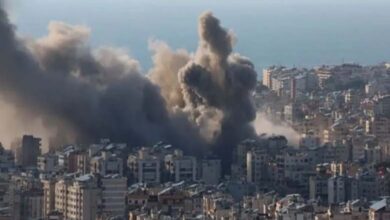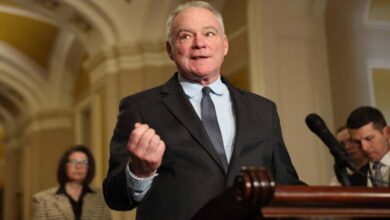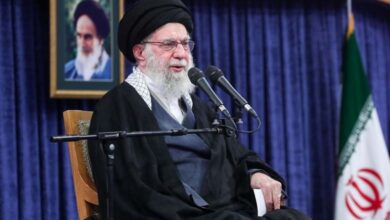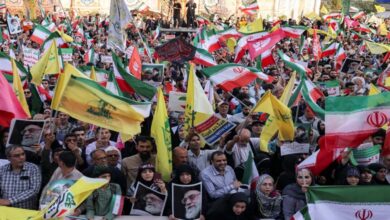Between Escalation and De-escalation: How Will Trump Handle Iran?
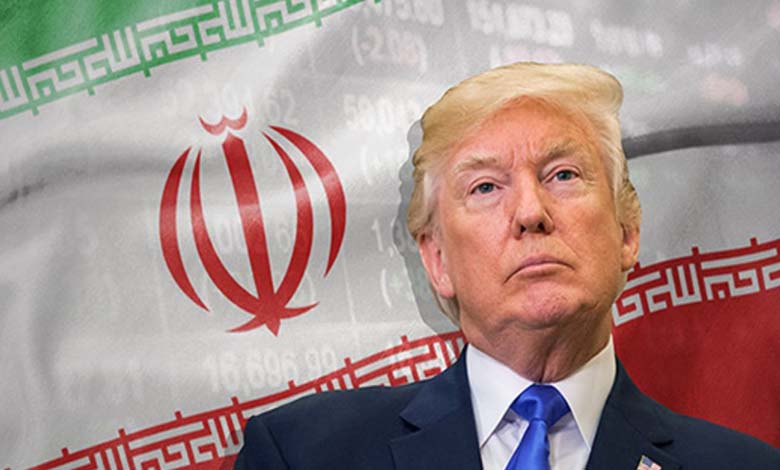
U.S.-Iran relations are at a critical juncture, reflecting the contradictions in President Donald Trump‘s foreign policy, which combines the language of threats with indirect negotiations.
-
Trump and Iran: 4 Possible Scenarios, Including “Shock and Awe”
-
Trump’s Return Pushes European Powers to Demand Increased Pressure on Iran
In November of last year, Elon Musk met with Iran’s UN envoy, Saeed Irvani, sparking speculation that Trump might adopt a more rational approach toward Iran, according to responsiblestatecraft.
These speculations were repeated when Trump decided, in mid-January, to withdraw security protection from former Secretary of State Mike Pompeo and former U.S. special envoy to Iran, Brian Hook, both key architects of the “maximum pressure” policy against Iran during his first term.
His decision to fire Hook from his transition team after his criticism of the Biden administration raised questions in Tehran about whether Trump was signaling a willingness for diplomatic dialogue with Iran, despite the uncertainty regarding whether these moves reflected a change in tactics or in strategy overall.
-
Iran Keeps Door Open for Dialogue with Trump and Prepares for New Sanctions
-
From Natanz to Arak: Iran’s Key Nuclear Facilities
A Vague Message
On March 5, Trump sent a letter to Iranian Supreme Leader Ali Khamenei, without revealing its content. He hinted at it the next day with a statement at the White House, saying, “I prefer to negotiate a peace deal… but we can strike a deal… as good as achieving military victory.” Two days later, he stated in an interview with Fox News that he wrote to the Iranians saying he hoped to negotiate but warned that the military alternative would be “a terrible thing.”
This statement suggests that Trump is demanding the complete dismantling of Iran’s nuclear facilities, a demand unacceptable to any Iranian leader. Khamenei and Foreign Minister Abbas Araghtchi have made it clear that Iran will not submit to American ultimatums, making military conflict a potential outcome if Trump‘s rhetoric takes on an “either you take it or leave it” tone.
-
Why Can’t Trump Be Elected for a Third Term?
-
In Iran’s Eid Sermon: The U.S. and Israel Present with Warnings
Military Reinforcements
According to Newsweek, the U.S. has sent the aircraft carrier USS Carl Vinson to the Middle East, joining its counterpart USS Harry S. Truman, doubling the U.S. offensive capability near Iranian shores.
Intelligence reports indicate the potential dispatch of a third carrier, the USS Gerald Ford, in an additional escalation.
Satellite images have also revealed the stationing of six B-2 Spirit bombers—the most advanced in the U.S. Air Force—at Diego Garcia base in the Indian Ocean, supported by refueling aircraft to ensure their ability to conduct long-range strikes on underground Iranian facilities.
-
Tehran Ready for Indirect Talks with Washington in Response to Trump’s Letter
-
Khamenei, Iran’s Illness and the Obstacle to Any Agreement with Washington
Israel: An Unstable Ally
At the same time, the equation has become more complicated with Israel’s role, as Prime Minister Benjamin Netanyahu seeks to leverage U.S. escalation for political and military gains, particularly following Trump‘s provocative remarks about “expelling Palestinians from Gaza,” which Netanyahu saw as an opportunity to “reshape the demographic map.”
However, launching an attack on Iran would be difficult, especially with rising protests in Israel over the ongoing war in Gaza. Israeli President Isaac Herzog has warned of a “constitutional crisis that could lead to a deep internal split,” a statement that provoked angry reactions from Netanyahu’s Likud Party, which accused him of being “part of the deep state.”
With escalating internal tensions and expanding Israeli military operations in Gaza, Lebanon, and Syria, Netanyahu may find himself in an uncontrollable situation, especially if it results in the deaths of Israeli hostages held by Hamas or sparks a multi-front confrontation with Iran and its proxies in the region.
-
Iran Reshuffles Its Proxies in Yemen and Iraq amid U.S. Strikes
-
Iran’s Nuclear Program: Tehran Awaits Trump’s Message via an “Arab Country”
De-escalating the Situation
In an effort to ease tensions, Trump’s Middle East envoy, Steve Witkoff, appeared in a March 21 interview with Tucker Carlson, stating that Trump‘s letter to Khamenei was not an ultimatum and that he sought a nuclear deal involving “verification,” adding that the military option was not a “good alternative.”
Trump: Between Escalation and De-escalation
Despite the efforts of his advisors, Trump remains an unpredictable factor. If the situation in the Middle East explodes, he could issue new statements that further increase confusion among leaders in Washington, Tehran, and Tel Aviv.
It appears the battle over how to interpret Trump’s statements is ongoing, not only in Washington but also in Tehran. While some voices in Iran threaten violent responses, the government still hints at the possibility of indirect talks.
-
Billionaire, Party, and Politics… Trump’s Shadow Appears in Australia
-
“More for More”… Can It Unlock Iran’s Nuclear Code?
Diplomacy and Confrontation
Despite the unclear situation, Oman or European mediation may succeed in bringing both sides back to the negotiation table, especially given Trump’s need for an external achievement.
The more dangerous option is limited U.S. strikes—such as those targeting nuclear facilities—that could provoke Iran into violent retaliation via its regional proxies, potentially igniting a large regional war.
Washington might also resort to imposing stricter sanctions or launching cyberattacks to avoid direct confrontation, but this option remains fragile given the increasing hostile rhetoric from the U.S.
Ultimately, the coming weeks will be decisive in determining the future course of relations between the two countries, either toward diplomacy or toward a confrontation that could come at a high cost for the region and the world.
-
Trump Promotes a New Nuclear Deal with Iran to Avoid Military Option
-
Iran Reshuffles Its Strategy by Appointing Naim Qassem as Khamenei’s Representative in Lebanon
-
Khamenei Urges Strengthening Military Power to Curb Trump’s Threats
-
U.S. Report: Israel to Launch an Attack on Iranian Nuclear Sites by Mid-Year


